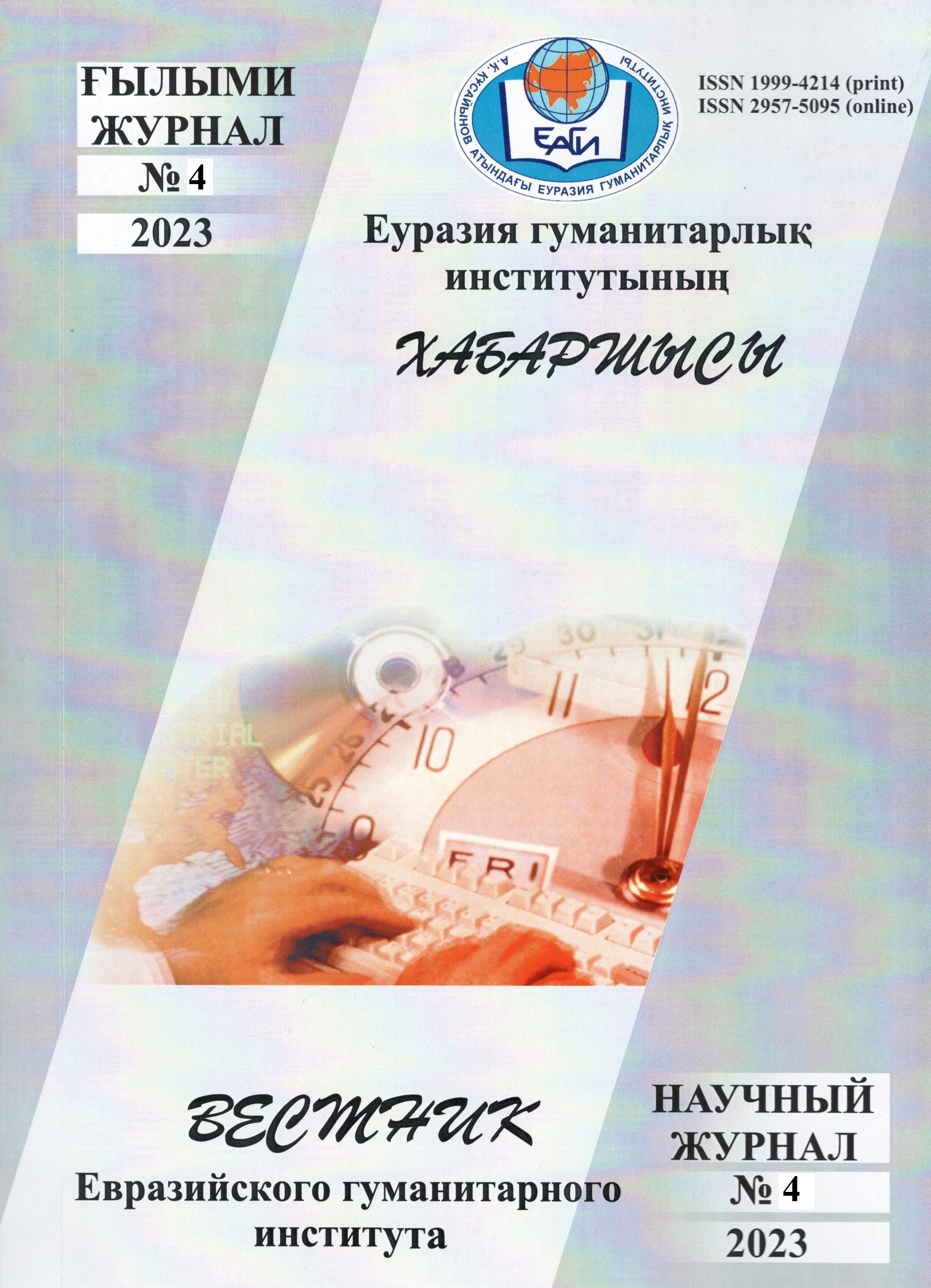THE WORD-FORMATION POTENTIAL OF THE WORD-FORMATION NEST WITH THE ORIGINAL WORDS «ZAN»
Keywords:
word formation, word-formation nest, word-formation chain, word-formation stage, law.Abstract
In this article, the word-formation potential of the word-formation nest with the original word "zan" (law) is determined based on the analysis of the word-formation nest formed from this word. The works of such scientists as N. Oralbai, O. Tokkozhaeva, A. Salkynbai, K. Kurmanaliev, B. Yessimseitov, N. Kokisheva, T. Tokhtarov, D. Kuandykov, who studied the problem of the word-formation nest, are considered.
A mandatory element of the word–formation nest is the source word. The original word, it is commonly called the top, plays a very important role in the formation of the word-formation nest, affects its structure, the semantic relations of single-root words in the structure of the nest. It is part of all derived words, determines their meaning. To date, the vertices in the nests can be: nouns, adjectives, numerals, verbs, adverbs.
The article analyzes one of the main concepts of legal discourse – the word "law" from the point of view of the word-formation nest. 43 derived words are determined, 24 of them are terms formed in the word-formation nest by synthetic, analytical, lexico-semantic methods of word formation. The identification of synchronous word-formation potential requires the determination of the volume, depth of word–formation nest. At the same time, it was found that the volume of analyzed word-formation nest and their structure depend primarily on the volume of the lexico-semantic space of the source words. The more extensive the system of meanings a word has, the more voluminous its word-formation nest. The dependence of the volume of word-formation nest on the frequency of use of their source words was also revealed. The word-formation potential of the original words is also revealed by the depth of the word-formation nest, which means the number of syntagmatic, paradigmatic units in this particular word-formation nest.
Linguistic data are collected from the Explanatory Dictionary of the Kazakh language, the Dictionary of Legal Terms and the Textbook Customs Law of the Republic of Kazakhstan.


